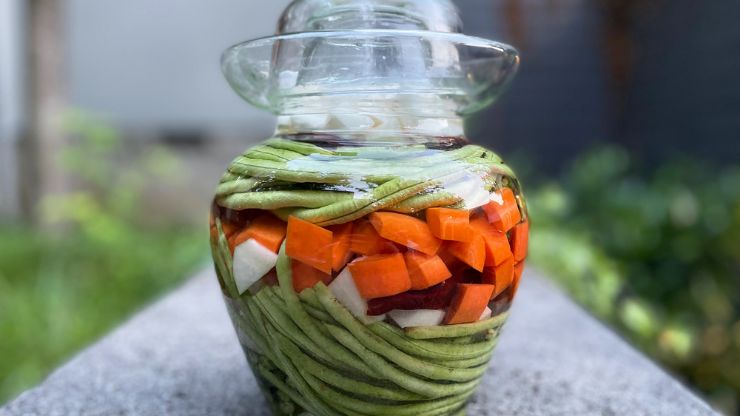Welcome to the world of fermentation, where flavors meld and textures transform. If you’re on a journey to perfect your pickling prowess, one crucial element you can’t overlook is the choice of fermenting weights. In this guide, we’ll explore the importance of these unsung heroes in the fermentation process and help you navigate the sea of options to ensure your pickles turn out crisp and flavorful every time.
Table of Contents
ToggleThe Significance of Fermenting Weights
Fermentation is a transformative process that turns ordinary vegetables into flavorful delights, but achieving the perfect pickle requires more than just a good recipe. Enter fermenting weights—an often underestimated but crucial component in the world of fermentation. Here’s why these unassuming tools play a significant role in the success of your fermenting endeavors:
Preventing Spoilage
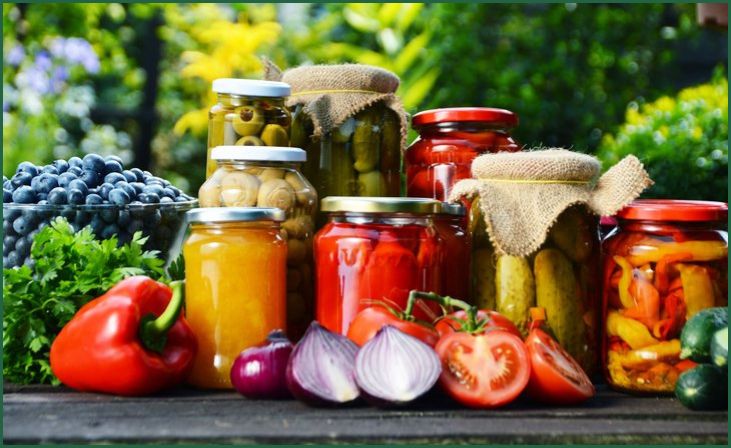
- Fermenting weights keep vegetables submerged beneath the brine, creating an anaerobic environment that inhibits the growth of harmful bacteria and mold.
- By ensuring that all parts of the vegetables are below the surface, fermenting weights contribute to a consistent and safe fermentation process.
Maintaining Texture and Flavor
- Proper submersion prevents vegetables from being exposed to the air, which can result in undesirable texture changes and off-flavors.
- Fermenting weights contribute to a uniform fermentation environment, helping to produce pickles with a crisp and appealing texture.
Also Read: Fermenting with Dead Sea Salts
Encouraging Fermentation Consistency
- Consistent submersion facilitated by fermenting weights promotes even fermentation throughout the batch.
- This uniformity ensures that each pickle benefits from the same level of fermentation, avoiding inconsistencies in taste and texture.
Preventing Floaters
- Without fermenting weights, vegetables have a tendency to float to the surface, exposing them to the air and potentially leading to spoilage.
- Weighted fermentation keeps vegetables securely beneath the brine, minimizing the risk of spoilage and preserving the quality of your pickles.
Enhancing the Fermentation Experience
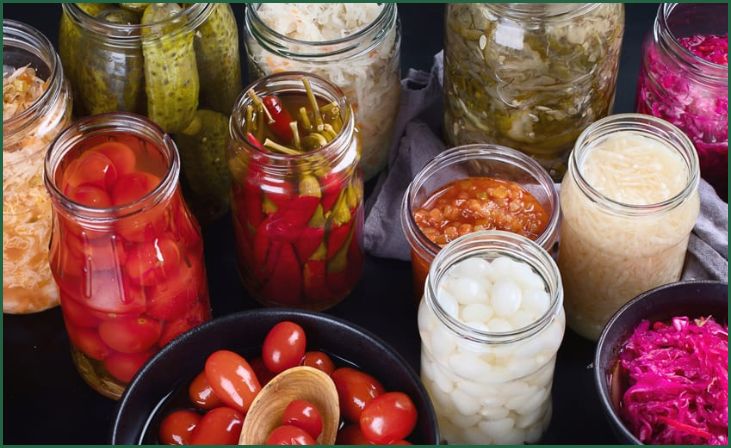
- Using the right fermenting weights simplifies the fermentation process, providing a hassle-free and enjoyable experience for both beginners and experienced fermenters.
- With weights in place, you can have confidence that your pickles will turn out consistently delicious, making the entire fermentation journey more rewarding.
In essence, fermenting weights are the unsung heroes of the fermentation world, ensuring the success of your pickling endeavors by creating the optimal conditions for flavor development, texture preservation, and a consistent, enjoyable outcome. Choosing the right fermenting weights is a small investment that yields significant returns in the form of mouthwatering, perfectly fermented pickles.
Types of Fermenting Weights
When it comes to fermenting weights, there is a diverse range of options available, each with its own set of characteristics and benefits. Understanding the types of fermenting weights can help you choose the one that best suits your preferences and the specific requirements of your fermentation process:
Glass Fermenting Weights
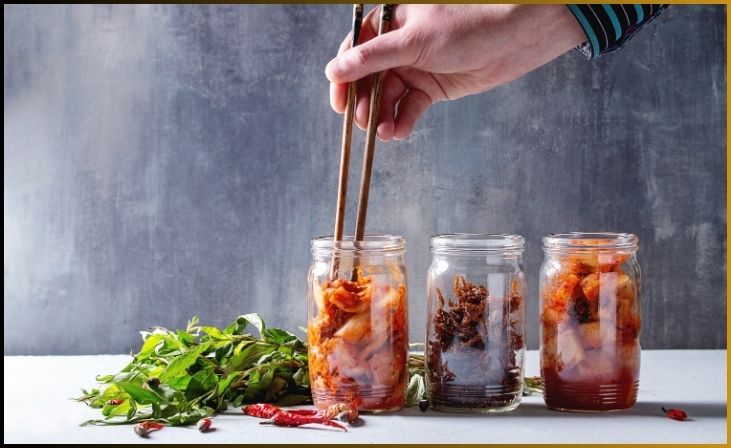
- Material: Made from food-grade glass.
- Pros: Heavy and durable, providing effective submersion. Non-reactive, ensuring no impact on the flavor of the ferment.
- Cons: Can be breakable if mishandled.
Ceramic Fermenting Weights
- Material: Crafted from glazed ceramic.
- Pros: Heavy, aiding in vegetable submersion. Non-reactive and resistant to corrosion.
- Cons: May chip or crack if dropped.
Water-Filled Fermenting Bags
- Material: Food-grade plastic pouch filled with water.
- Pros: Adjustable weight by adding or removing water. Less prone to breakage.
- Cons: May not fit all fermentation vessels. Some users find them less aesthetically pleasing.
DIY Options – Stones or Ziplock Bags with Brine
- Material: Natural stones or sealed plastic bags filled with brine.
- Pros: Readily available and inexpensive. Easy to customize to fit various vessel sizes.
- Cons: May require additional cleaning. Stones may vary in weight.
Silicone Fermenting Lids with Built-in Weights
- Material: Flexible food-grade silicone.
- Pros: Convenient all-in-one solution. Easy to clean and reuse. Flexible design fits various container sizes.
- Cons: May not be as heavy as some other options.
Vegetable Fermentation Weights
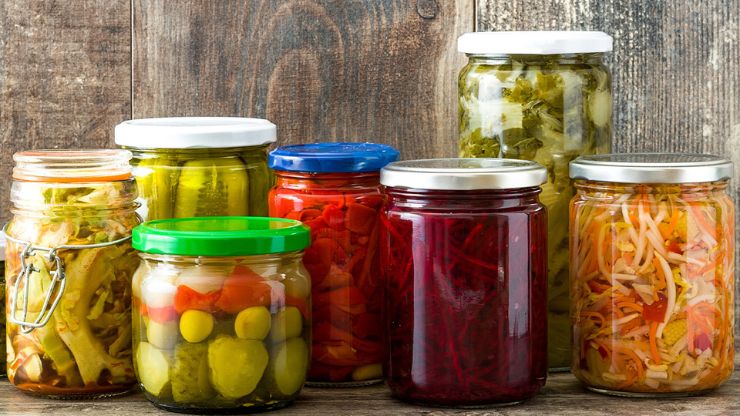
- Material: Typically made from food-grade plastic.
- Pros: Designed specifically for vegetable fermentations. Easily customizable to fit different containers.
- Cons: May not be as heavy as glass or ceramic weights.
Choosing the right type of fermenting weight depends on factors such as personal preference, the vessel you use, and the type of fermentation you’re undertaking. Consider the pros and cons of each option to find the perfect balance between functionality, convenience, and your specific fermentation needs.
Tips For Choosing the Right Fermenting Weights:
Selecting the appropriate fermenting weights is a crucial step in ensuring a successful and hassle-free fermentation process. Here are some valuable tips to guide you in choosing the right fermenting weights for your pickling endeavors:

Material Matters:
Consider the material of the fermenting weights. Glass and ceramic weights are durable and non-reactive, preserving the flavor of your ferments. Plastic options, such as water-filled bags, are lightweight and less prone to breakage.
Also Read: Fermenting in Hot Weather
Weight and Size:
Ensure that the chosen weights are heavy enough to effectively submerge your vegetables. The weight should be proportionate to the size of your fermentation vessel to maintain proper vegetable submersion.
Don't just scroll, subscribe!
BuzzTrail's unique web-stories are the cure for boredom you've been waiting for.
Compatibility with Fermentation Vessel:
Check if the fermenting weights are compatible with the type of fermentation vessel you use. Some weights may be designed for specific containers, while others offer more versatility. Choose weights that fit securely in your chosen fermentation vessel.
Ease of Cleaning:
Opt for fermenting weights that are easy to clean and sanitize. This is especially important as cleanliness plays a crucial role in successful fermentations. Materials like glass, ceramic, and silicone are often easier to clean than porous or intricate designs.
Versatility:
Consider the versatility of the fermenting weights. Some options, like silicone lids with built-in weights, offer an all-in-one solution that fits various container sizes. This versatility can be especially beneficial if you use different vessels for different fermentations.
DIY Options:
Don’t overlook the simplicity and cost-effectiveness of DIY options. Natural stones or sealed plastic bags filled with brine can be effective weights, and they are easily adaptable to different container sizes.
Aesthetics and Convenience:
Think about the aesthetics of the weights and how convenient they are to use. Some weights come in aesthetically pleasing designs, while others may be more utilitarian. Choose weights that align with your preferences and make the fermentation process more enjoyable for you.
Read Reviews:
Before making a final decision, read reviews from other fermenters who have used the same or similar weights. User experiences can provide valuable insights into the performance and durability of the weights you’re considering.
Also Read: Common Fermenting Mistakes
By keeping these tips in mind, you’ll be better equipped to choose fermenting weights that complement your fermentation style, enhance the overall process, and contribute to the success of your pickling endeavors.
Conclusion
As you embark on your fermentation adventure, remember that the secret to exceptional pickles lies in the details, and the right fermenting weights play a vital role. Whether you’re a seasoned fermenter or a novice in the kitchen, investing in quality weights is a small yet impactful step toward culinary success. With the perfect weights in place, your pickles will be the talk of the town, delighting taste buds and making you the master of your fermentation domain.
FAQs
Why are fermenting weights essential for the fermentation process?
Why are fermenting weights essential for the fermentation process?
Fermenting weights keep vegetables submerged in brine, preventing spoilage and ensuring a consistent, crisp texture in your pickles.
What types of fermenting weights are available, and which is best for me?
What types of fermenting weights are available, and which is best for me?
There are various options, including glass weights, ceramic weights, and water-filled bags. Choose based on your preferences and the type of fermentation vessel you use, ensuring a snug fit to keep veggies submerged.

